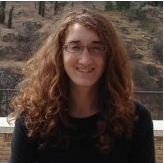 by Melissa Grober, Director of Partnerships, HandsOn Network
by Melissa Grober, Director of Partnerships, HandsOn Network
I thought it was pretty cool that hair and pantyhose could be combined to absorb oil in the Gulf (called a “hair boom”).
 Apparently, so did a lot of other people, as suddenly I saw people in the online community running off to donate their hair to the oil spill clean-up efforts.
Apparently, so did a lot of other people, as suddenly I saw people in the online community running off to donate their hair to the oil spill clean-up efforts.
How disappointing, then, that the hair boom is a bust.
According to Unified Command, commercial sorbent boom is much more effective at absorbing oil and has the added advantage of not sinking the way hair boom does.
Another case of good intentions gone wrong.
This happens a lot in the disaster world.
The past several weeks have been challenging for many of our affiliates, particularly in the southeastern part of the country.
Between major flooding, tornadoes, storms, and the oil spill, we’ve had more disasters to respond to in 30 days than we had in all of last year!
(Perhaps an exaggeration, but I wouldn’t be surprised if it were true…)
The oil spill in the Gulf presents a special kind of challenge to volunteers.
Many people want to help the wildlife and help to clear oil from the shore. But volunteers sometimes end up doing more harm than good, both to themselves and to the wildlife they want to help.
This is why Unified Command has decided to use only highly trained paid workers to handle the clean-up efforts.
Our affiliates, however, are working hard to find appropriate ways for volunteers to address critical needs in the Gulf.
Most disasters are not like the oil spill, however.
Communities affected by disaster often need a lot of volunteer support.
Since the flood disaster in early May, Hands On Nashville has signed up 15,000 volunteers. They have coordinated 830 projects, and their volunteers have contributed an amazing 63,000 hours of service since the flooding began.

Photo by Nathan Johnson, Hands On Nashville Volunteer
Hands On Nashville has done such a good job coordinating volunteer efforts that it was highlighted by FEMA Administrator Craig Fugate for their exemplary work.
The remarkable efforts of the many volunteers in Nashville and HandsOn Nashville got a huge shoutout from NBC Nightly News with Brian Williams last night!
While our affiliates have done a great job in coordinating the work of people who want to help so far, much of the work is still to come.
Our strength as a network in responding to disasters lies in our efforts to promote not just immediate response but also long-term recovery.
Organizations like the American Red Cross and The Salvation Army are great at serving the immediate needs of people affected by disaster, like shelter, food, and urgent care.
We often work side-by-side with these organizations, providing food and water to emergency workers and handing out supplies. And when the immediate needs have been handled and the media attention subsides, our local affiliates and volunteers continue the long, hard work of recovery.
We coordinate volunteers to help with mold abatement in flood-damaged houses.
We help to rebuild damaged schools and community centers. And we provide job training and skill-building resources to people who have lost their jobs.
We’re connected to the needs of communities and we meet those needs through our greatest asset—people who care.
We drive people with good intentions to good volunteer opportunities, and we’re in it for the long haul.


 Apparently, so did a lot of other people, as suddenly I saw people in the online community running off to donate their hair to the oil spill clean-up efforts.
Apparently, so did a lot of other people, as suddenly I saw people in the online community running off to donate their hair to the oil spill clean-up efforts.
 by Terri McPherson-Turow
by Terri McPherson-Turow
 One of our biggest needs right now is finding educators to come in. A major lesson of
One of our biggest needs right now is finding educators to come in. A major lesson of  Over the weekend, approximately 600 volunteers in Escambia County, Florida helped clean up Pensacola Beach and on Perdido Key, the County Commissioner responsible for that area said that over 500 volunteers were assisting in the clean-up.
Over the weekend, approximately 600 volunteers in Escambia County, Florida helped clean up Pensacola Beach and on Perdido Key, the County Commissioner responsible for that area said that over 500 volunteers were assisting in the clean-up.
